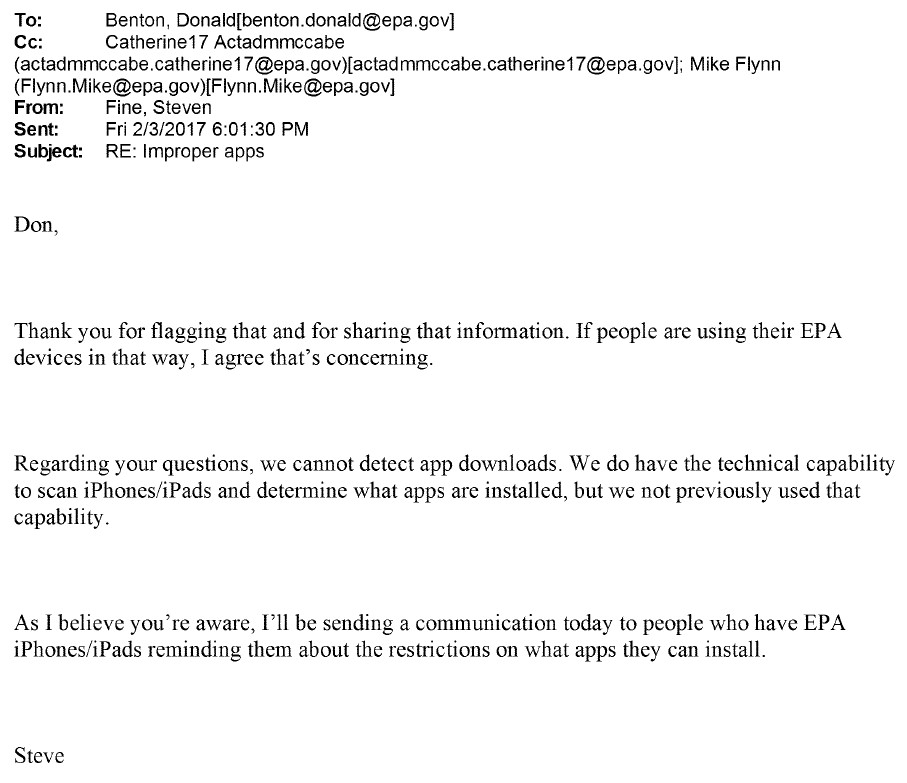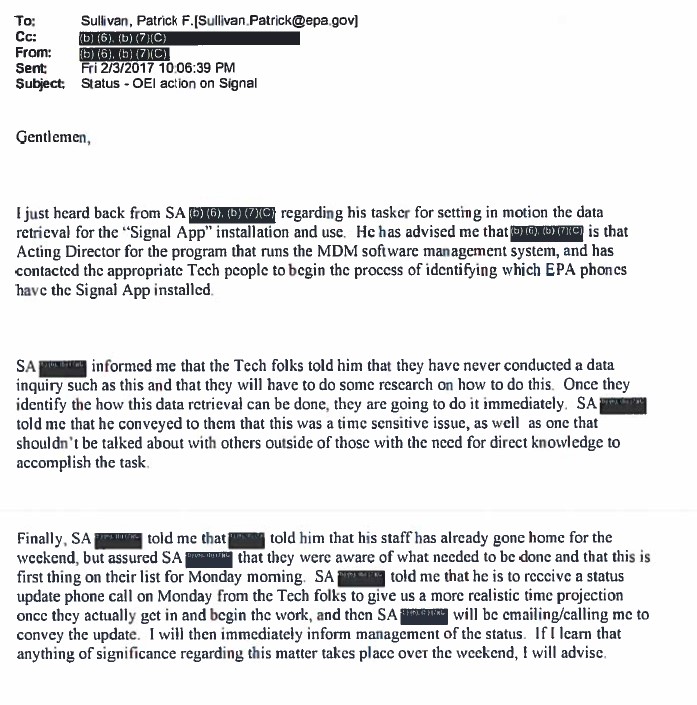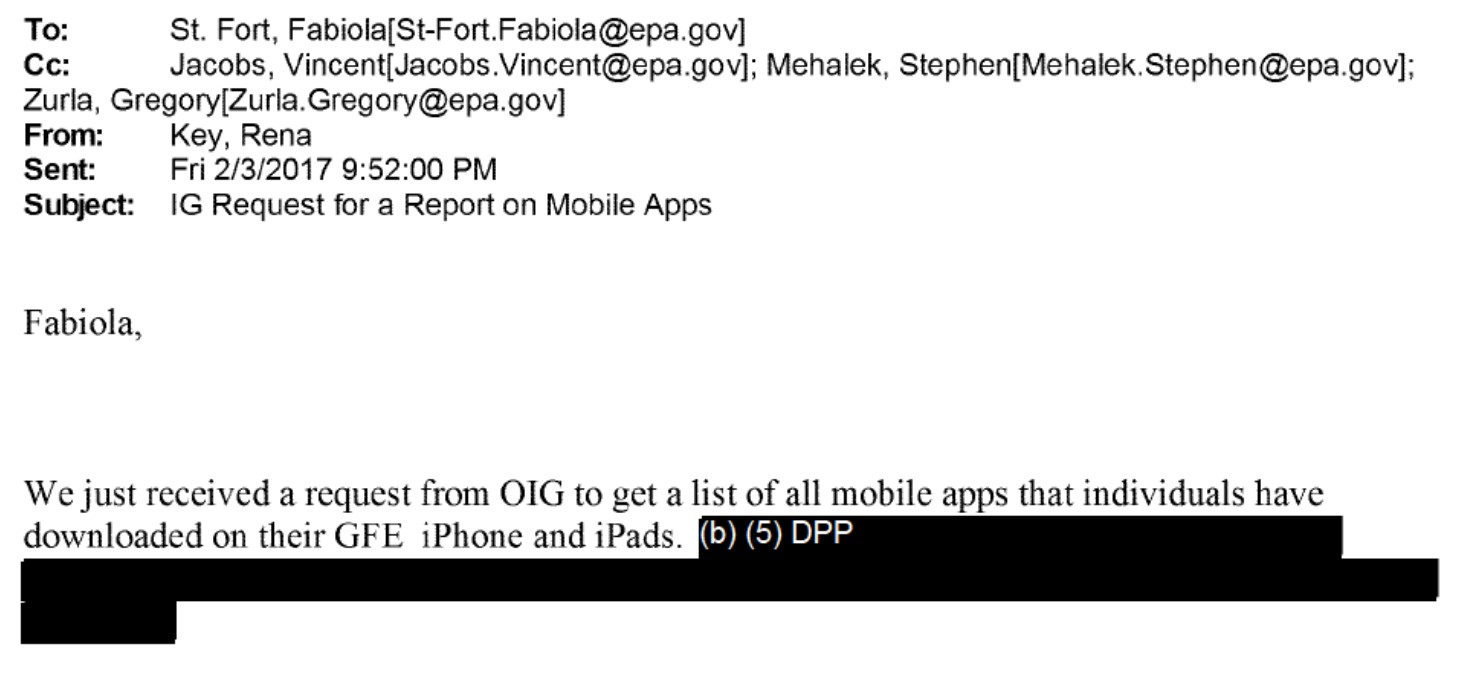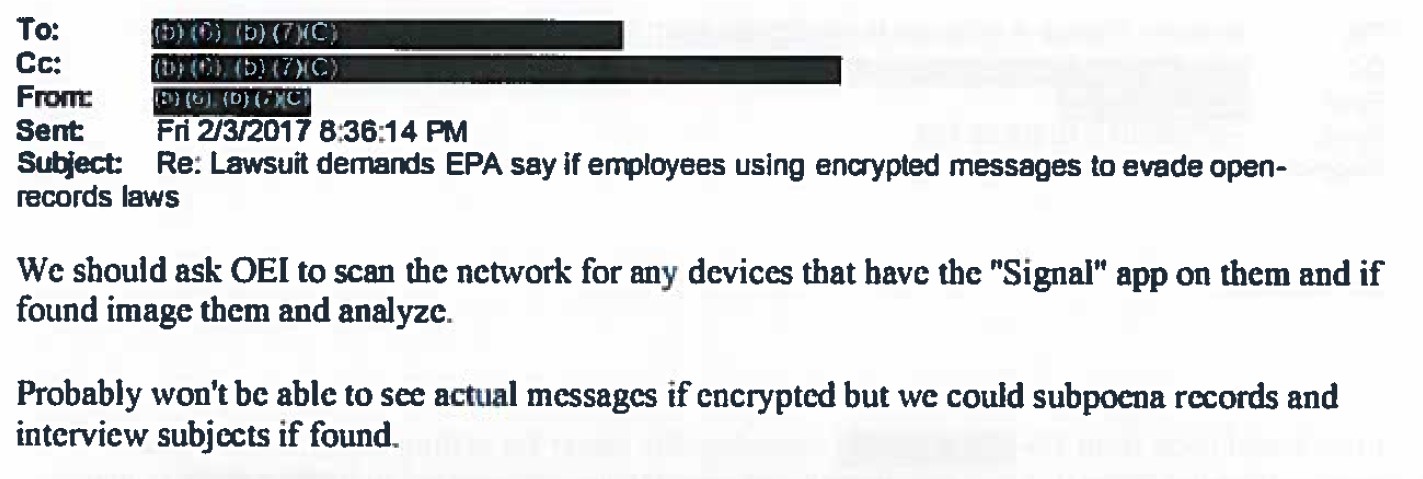Washington, D.C. – Cause of Action Institute (“CoA Institute”) today filed a second lawsuit in the U.S. District Court for the District of Columbia against the Environmental Protection Agency (“EPA”) for the failure to disclose records about an ongoing investigation into agency employees’ use of an encrypted messaging application, called “Signal.” The records at issue—which were the subject of two Freedom of Information Act (“FOIA”) requests (here and here)—include a special report, requested by the EPA Office of Inspector General and generated by an agency contractor, which identifies the mobile applications running on most EPA-furnished devices, as well as documents concerning the agency’s continuing efforts to address allegations of wrongdoing, including the avoidance of federal records management laws.
CoA Institute Counsel Ryan Mulvey: “We now know that a small group of career EPA employees used Signal to avoid transparency. These employees’ work-related communications—including their messages concerning any proposed efforts to thwart the new administration’s political appointees from carrying out the president’s policy agenda—should have been preserved for disclosure to the public. Records released by the EPA, however, prove that this preservation never took place. Now, the EPA has effectively refused to disclose any additional documents that could show how pervasive the use of Signal was and how seriously the agency has tried to rectify deficiencies in meeting its record preservation obligations.”
CoA Institute opened its investigation into the use of Signal at the beginning of the year, following media reports that suggested a select number of career officials were using the application to plan methods for obstructing the Trump administration’s incoming political leadership. CoA Institute’s investigation was widely discussed in the press, along with Congress’s request for the EPA’s watchdog to independently investigate the matter.
Just hours after CoA Institute filed its first FOIA lawsuit, on March 23, 2017, the EPA’s Office of General Counsel acknowledged that there was, indeed, an “open law enforcement” investigation and, as a result, responsive records would have to be redacted. The EPA ultimately reconsidered its position and, notwithstanding its active investigation, agreed to release relevant records. Those records prompted the follow-up FOIA requests at issue in today’s lawsuit.
More information on CoA Institute’s investigation can be found here.
The full complaint can be found here.
For information regarding this press release, please contact Zachary Kurz, Director of Communications at CoA Institute: zachary.kurz@causeofaction.org.







